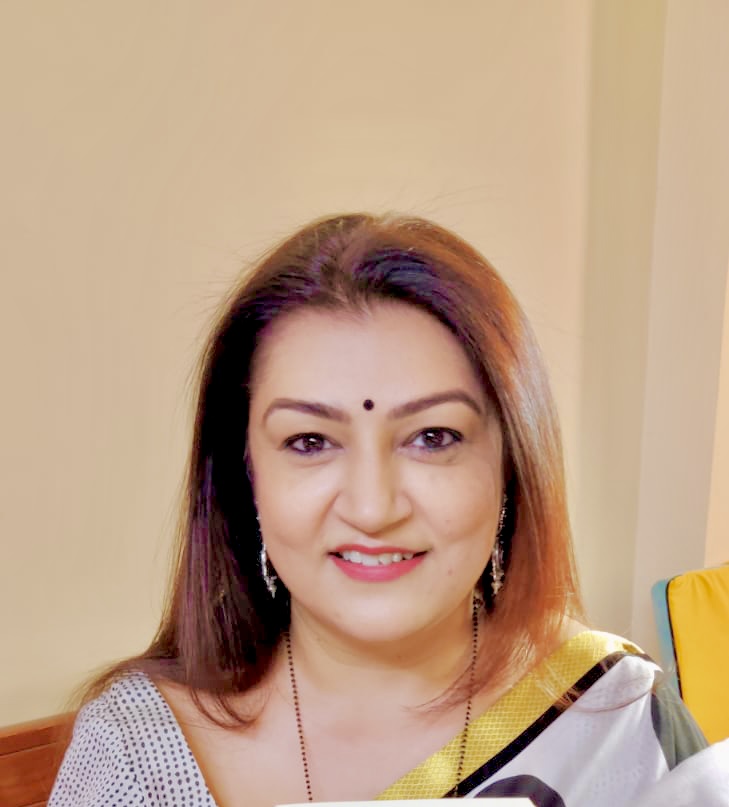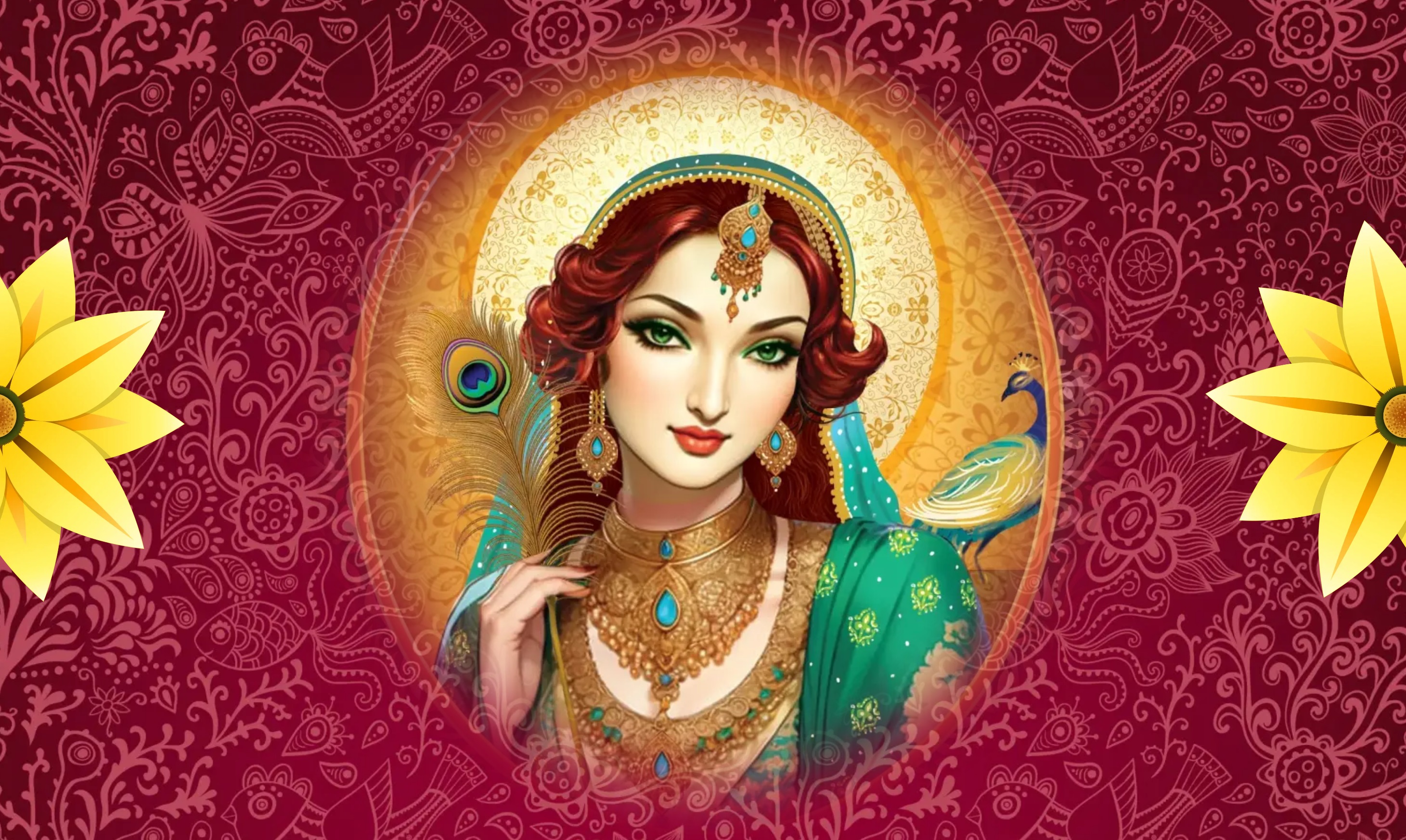 Dr. Harshali Singh needs no introduction, a member judge at the consumer forum and a prolific author who has captured mind space of readers with her Haveli Series and now Anarkali. We caught up with her to talk about her latest book.
Dr. Harshali Singh needs no introduction, a member judge at the consumer forum and a prolific author who has captured mind space of readers with her Haveli Series and now Anarkali. We caught up with her to talk about her latest book.
Readomania: The very existence of Anarkali was obliterated from the annals of history. It must have been a gargantuan task to write about a character whoseexact details might be obscured by time and embellishment.
Harshali: Anarkali neither finds mention in Akbar Nama, the chronicles of Akbar's rule, nor does she find any mention in Salim or Jahangir as he was later rechristened, his son's, Tuzk-e-Jahangiri or Jahangir Nama, the chronicle of his rule. They were two great Mughal Emperors, yet both preferred to keep her out of their history.
She was first introduced in history in the journal of English trader and traveller William Finch, who visited the Mughal Empire in 1608. In Lahore, he first heard of Anarkali 11 years after she had died by immurement. She was buried alive in a wall of his mahal on the command of Emperor Akbar around 1597–98.
She again found mention in the notes of Edward Terry, another traveller trader who visited a few years after William Finch. He wrote that Akbar had threatened to disinherit Jahangir for his relationship with Anarkali, the emperor's most-beloved wife, but on his deathbed, he repealed the threat.
There is no other historical proof of Anarakali's existence than that of these Western traveller's accounts, which could not be independently confirmed.
It always bothered me. If Anarkali was a legendary and impactful woman, why would she not find mention, and if someone had consciously tried to erase her identity, what could have prompted this act of vengeance?
That was where I began looking for her roots. And I didn't find much. Obscure articles, some stories and a few leads from cinema and theatre portrayed her as a lovelorn woman in a scandalous relationship with her stepson, a damsel in distress. Seeing a poor, helpless woman saved by a man appealed to the masses, and I think that celluloid gave us a masterpiece. But this had to be only one facet of her personality.
No one delved deeper into the mind of this woman who entered the extremely hierarchical Harem with strict rules and even stricter purdah system at a very young age. She not only survived but also became an essential and favourite consort to the most powerful person in the Kingdom. The King.
How could she be a one-dimensional woman with no other thoughts in her head except falling in love? There had to be more to her. And that is what my book Anarkali explores. The woman behind the beauty, the ambition underneath the charisma and the sharp mind behind the vulnerability.
I think I wrote this book for her.

Readomania: Say, Anarkali is an out-and-out fictitious character; why did a need arise to incorporate her existence in Akbar and Salim's life?
Harshali: In Lahore, Pakistan, there stands a beautiful stone tomb within a four-square garden, which still stands. It is octagonal in shape, with towers at each corner topped by a double-dome resting on arches.
Inside is a white marble cenotaph richly carved with the 99 names of Allah. There is also a Persian inscription,a verse of Sadi, a 13th-century poet.
Translated, it reads:
Could I behold the face of my beloved once more,
I would thank God until the day of resurrection.
~ Majnun Salim Akbar
Art Historians believe that Salim or Emperor Jahangir built this stone edifice called the Tomb of Anarkali, as he was later known in the 16th century, anywhere between 1599 and 1615.
The name at the base of the verse is - Majnun Salim Akbar.
No one would have had the courage to inscribe Jahangir's name on the tomb without his express permission, as Majnu is perceived as someone who is almost obsessed and mad with love for his beloved.
Daniyal Mirza, the third son of Emperor Akbar, who is purported to be Anarkali's son. In historical records readily available, his birth or biological mother is listed as just- a concubine. No name is given. His birth to one of Akbar's concubines (khwas) is recorded by Jahangir himself in his memoir Tuzuk-i-Jahangiri.The fact that he was raised by Marim uzZamani, colloquially known as Jodha Bai, finds more space in history.
Meanwhile, Murad Mirza, the second son, born 9 months after Salim, was also the son of Akbar and of a concubine, Bibi Kheira, and was raised by Salima Sultana Begum.
How, then, can we say that she was fictitious. These may be speculations and hypotheses, but they sound plausible to my academic mind.
But of course, people can believe she was fictitious. If I were to look at that perspective as to why even bring her into the mix of an already fraught equation between father and son, I would say it makes for intense, complex emotions, which I would understand a literary fiction writer would love to explore. The first introduction to Anarkali was made in an Urdu play called Anarkali written by Sayed Imtiaz Ali Taj in 1922, and later, several other versions of the story were used on the stage and celluloid, Mughal- e azam being the most loved.
Readomania: Courtesans, pawns or women in the shadows have always invoked interest. But there is a sudden presence of books around their lives now. What is the reason behind the re-emergence of similar characters?
Harshali: There is no dearth of powerful women who were the change makers, but due to the times they lived in, there was significantly less recognition or credit given. Power dynamics were shaped in such a way that women were left holding the short end of the stick.
Their stories serve as a ready reckoner for the woman of these times who can relate tothwarted desires and unsatisfied ambitions. It is, therefore, our duty as writers to shine a light on their positive qualities: the courage, the survival instinct, and the core emotional strength to withstand the unfairness meted out to them and yet thrive. To understand that women need to support each other to rise as a tribe. To talk of inclusivity and that help can come from the most unexpected quarters.
In this world that is slowly losing its humanity, we need more stories that embrace the emotional quotient, the compassion that is intrinsic to us all. If even one man reads a story of a woman in an undesirable situation and course corrects or is at least moved to think about his behaviour and the consequences of his entitled life, these stories would have served their purpose.
If even one woman at the end of her rope finds strength through these stories of valour, of holding on for another day, then as writers, we would have succeeded, as would the protagonists of our stories.
Readomania: The chess theme is predominant in Anarkali. In fact, every chapter is titled after a chess move. What was the thought behind that?
Harshali: Chess is more than a game. It is a beautiful and fascinating experience, a discovery of sorts into yourself. Planning, strategising, making predictions, and critical thinking skills. Learning how to accept defeat when no more moves are left. These are life skills on a small black-and-white checkered board.
Anyone can learn the game and play; everyone is equal on the board. You can better yourself and win. There are surprises and pitfalls, but just like life, you make the choices and reap the consequences of the choices, too.
There are rules, and it involves all your senses. Riveting, just like life.
Anarkali was in a game of life and death with her destiny, and I felt nothing else explained it better than famous chess moves. That was the reason I named all the chapters accordingly.
Readomania: For most of us, our knowledge of Anarkali is limited or majorly influenced by K. Asif's magnum opus Mughal-e-Azam (1960), where the ethereal Madhubala played the doomed courtesan. Your Anarkali is nothing like the cine character. She is someone who uses people like people use her. Isn't it?
Harshali: The movie was a visual treat, and I loved the music and the portrayal. But for whatever reason, it depicts only a small fragment of Anarkali's personality, which is exquisitely done. I didn't want to talk about the affair or love. My Anarkali was a woman one can relate to with skills that she would need to survive the harsh landscape of Mughal Harem.
If that means she has a sharp and cunning mind and looks out for herself, she would have to weigh the scales of who has the most power. She didn't have any backing in the lofty circles, and such individuals are not above getting their hands dirty to hold on to what they consider power or where they draw power from.
For a young girl to survive, she knew nothing was out of bounds. She would have understood that what she was engaging in was taboo. I don't fall in the category of—I couldn't help myself. One always can. We just choose not to because it enables us to justify the narrative we align with.
My Anarkali is flawed, and that, to me, is her real beauty. She is not perfect. She indulges in petty, vengeful acts, gloats at others' misfortunes, and can simultaneously accept her role and responsibility in her fall from grace.
Readomania: Then again, you have shown Emperor Akbar as an ageing monarch jealous of his son. That is also so different from the general perception of Akbar.
Harshali: As per my research and timelines, when Anarkali would have entered the Harem Akbar would have been in his late forties or early fifties,and as an over-the-hill man, he would have been repugnant to a young woman in her prime given his love for opium.
Set in his ways, Anarkali would have felt constricted by the rules of the zenana once the novelty wore off. My story is about a woman who begins losing respect for the man she has idolised all her life. It is about a woman who sees the most celebrated man without the sheen of grandeur and riches. She is party to his insecurities and his body odour and comes to understand that he isn't perfect. She is witness to the fall of the King from his pedestal.
Disappointed and aware that he is on the cusp of stepping down, she hedges her bets on the most promising contender, Salim, who had the most chance of sitting on the throne, having a solid backing in the Harem and being born from a queen.
Readomania: One of the book's most fascinating and entertaining features is the politics within the Zenana Mahal or Akbar's Harem. It almost goes on to prove that women are women's worst enemies, isn't it?
Harshali: Women are conditioned to compete with each other and imbibe from the very beginning that they have to serve the purpose of the patriarchal household or, extrapolating it, a society that treats half its population as less. Financial dependence can cause insecurity, leading women to tie their identity to how happy the man of the house is with them. Hence, the power dynamics of a home or society will undoubtedly be tilted since a woman's existence is based on your status in the man's eyes. This, in turn, leads to generational trauma,which is what we, the women of today, are dealing with.
Readomania: Your imagery is phenomenal. The way you have described the palaces, the courts, the gardens, the dungeons, the rugged and difficult terrain of Afghanistan…one is immediately transported to those places, to that era. How do you paint the picture down to the finest details in your mind's canvas before penning them down?
Harshali: A lot of time was spent reading because there is so much material available, though it is scattered.
There are the:
- Official Histories of Akbar and Jahangir, The translated versions are available.
- Semi-official histories
- Histories written by ulemas or theologians
- Insha collections
- Regional collections and histories
- Regional histories.
- Biographical dictionaries
- Later sources and histories
- Inscriptions and coins from Akbar's times
- Letters of priests that they sent to their superiors
I had to narrow down my search to what I was looking for. The zenana, paintings of Mughal women which are hard to find due to the strict purdah rules.
Reading travelogues, articles, travel books and guides, weather conditions, changes in their geography if any.
Learning the Flora and fauna of the region.
Indigenous tribes, their habits, dialect, food. I could write a book on the Pashtun tribes.
Similarly, visiting Fatehpur Sikri after reading up about it.
Slowly, a complete picture emerges in my mind. Then I begin to write. I have notes, reams of them, and diaries that I keep and refer to. Only 10% of my research goes into the book, but that is the spine of my writing. I won't begin unless I am sure of what I am penning down.
I have a tough scholarly reader base.
Readomania: Greed, ambition, jealousy, lust, power, love, betrayal—these are inherent themes in Anarkali. You have given equal importance to all. Which one was the most interesting to write about?
Harshali: Her ambition, I would say. Her survival instinct, coping mechanisms she uses, and acceptance of her fate. Also, her ability to read people and push their buttons to get what she needs from them ties back to her ability to work her way through the minefield that was the Mughal court and Harem.
Akbar—she plays the innocent and the siren.
Salim—she is the damsel and the dependent.
Durjan—she can shed her layers but still holds him at a distance.
Readomania: You have visited all the places mentioned in the book which are in India. How did it help in your research?
Harshali: Fatehpur Sikri was built with love, and I think one can sense it in the exquisite buildings and structures, especially the residence or the palace. Apparently, these were imitated in Lahore. So, I used my imagination to build something similar.
But I bring them back to Sikri and talk about the Anup Talao, the Pachisi Board, the Panch Mahal, the Harem and its dormitory-like rooms. Akbar's Khwabgah and how he would have it filled with water to keep it cool. Mariam's or Jodha's kitchen and palace and its architecture.
The tunnels from where she escapes. The three doors are now closed to the public. The courtyards would have rung with the tinkling of anklets and flapping cloth fans.
When visiting a place you want to write about, your imagination takes a tangible shape. The sights and smells add depth to one's words.
Readomania: What do you think readers will take away after reading Anarkali?
Harshali: Anarkali left a mark despite being erased from all historical recollections of her time. From her story, I want readers to acknowledge that women with undesirable jobs remain at the fringes. They may have gained social capital from their patrons then, but now they stay ostracised. I want them to believe that women can take up societal space and become change-makers.
Being powerful doesn't always mean cunning; it means being socially intelligent and aware of your surroundings. I wanted to highlight Anarkali's rise.
Most people want to give credit to Anarkali's rise to the men around her but ignore the role she plays in her own success. They like to assume that a powerful man fell in love with her, which is why she is important. But she wasn't the only beautiful woman in the court. Her agency is given to the men around her, and the focus should no longer be on the Love story but instead on the woman at the centre. Anarkali.
That Karma comes calling for everyone. King or pawn.


Comments